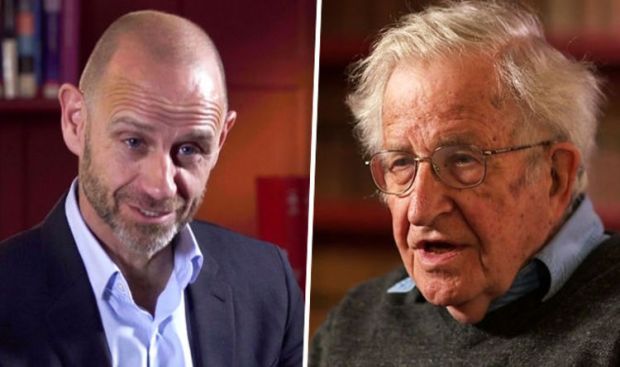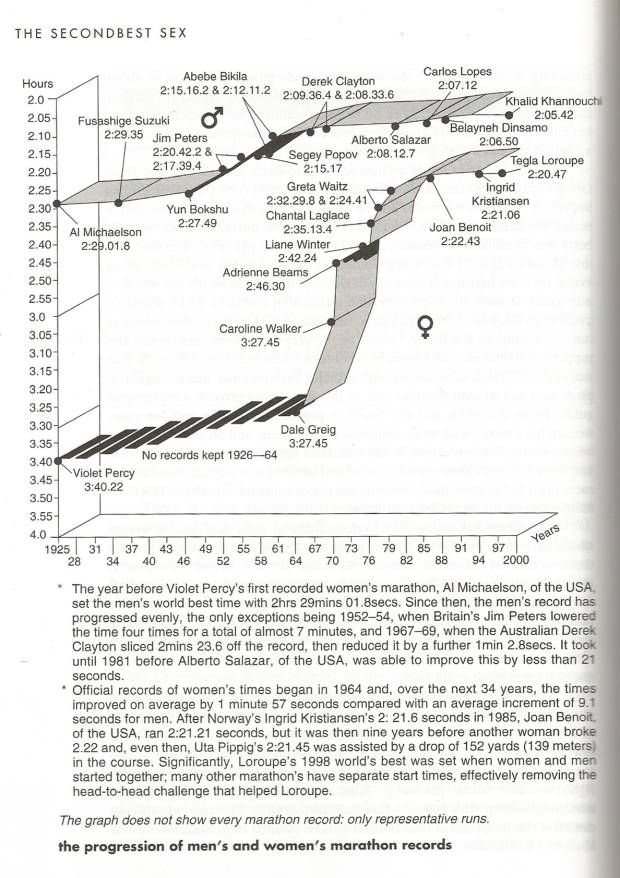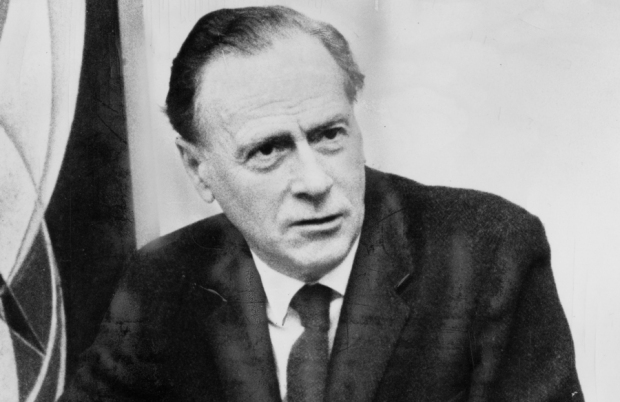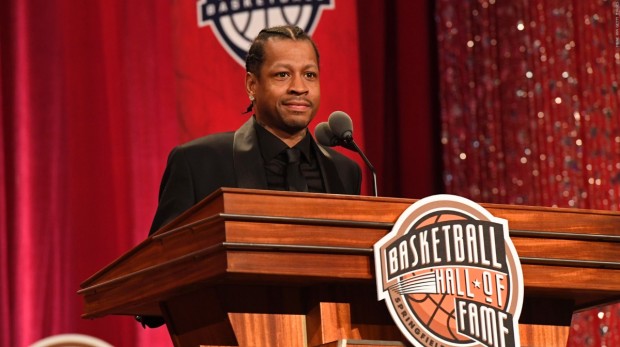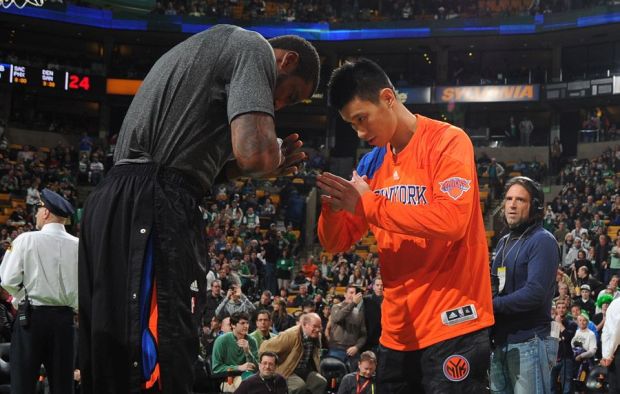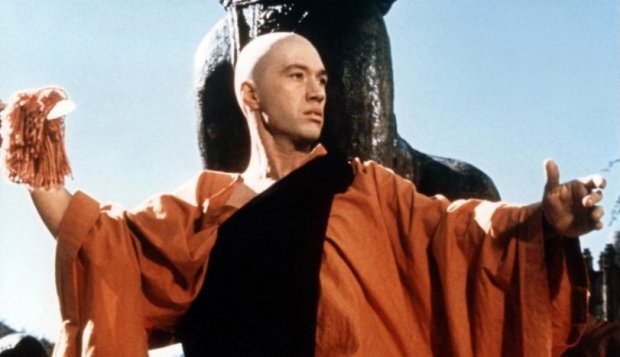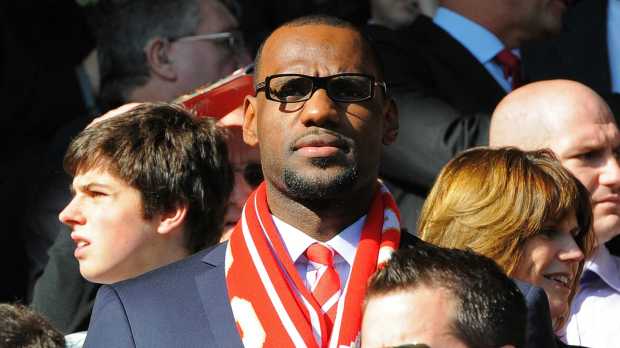Basketball, Anti-Communism, and Conspiracy Theory

In a word, compared with the splendid promises of the philosophers, the social and political institutions born of the “triumph of reason” were bitterly disappointing caricatures. All that was wanting was the men to formulate this disappointment, and they came with the turn of the century[1].
Kyrie Irving has been behaving strangely of late. During an interview last month, Irving expressed his apparent frustration[2] with capitalism (“the fact that you have to pay to play in this world is ridiculous”), and even brought up the taboo subject of class (“there’s a separate class that they’ve put us in because of money”)! However, rather than suggest a viable alternative, much less one in which we can all participate, Irving simply offered some brief remarks about his nebulous, utopian vision of a self-sustaining eco commune within which he and his friends might live pleasant and equitable lives isolated from the outside world.
Well, it may not be perfect, but perhaps we shouldn’t be too critical of well-intentioned celebrities. Surely we should be content that Kyrie Irving is prepared to imagine alternative ways of arranging society, regardless of the petty details. Or should we?
Irving, a notorious troll who just a few months ago made headlines by pretending to believe that the earth is flat, may have an ulterior motive. His peddling of a facile utopian socialism at a time when such a great deal of money and effort is being spent on anti-communist propaganda campaigns warrants suspicion.
During the second half of the twentieth century, secret armies of fascist hooligans were organised and maintained throughout various NATO[3] countries, their purpose to commit acts of terror under the “flag” of communism as part of a strategy of tension. Of course, Irving is not murdering civilians and blaming it on the Communist Party USA (yet); he is merely pretending to be an idiot, and then pretending to be some sort of a socialist in order to encourage the public to associate these two modes of thinking: socialists are clearly imbeciles, and to believe that capitalism is destructive, that there is an exploiting class and an exploited class, is as ludicrous as believing that the earth is flat.
It’s not that I think literally everything is a psyop[4]. I am not being entirely serious here, but I am being sincere. Is Kyrie Irving really engaged in some sort of “false flag” operation? I don’t know. Probably not. It’s quite possible that Irving really is a sensitive fellow with dreams of creating a better society, and that he simply hasn’t had the chance to devote much thought to it yet. I hope that this is the case, and time will tell. Nevertheless, we can be confident that basketball is used for propaganda purposes, that governments throughout the world do indeed carry out psychological operations on social media, and that the US military is very interested in the influence that celebrities exert over their Twitter followers. This being the case, we should regard the political rhetoric of basketball players and other celebrities with a healthy degree of scepticism.

Chelsea Manning demonstrating the capacity of jokes to reveal the truth.
I started writing this before Chelsea Manning began talking trash about communists, but Manning’s case is actually very relevant here, so it’s just as well she invited the ire of principled Marxist-Leninists with an ill-conceived tweet equating communism and fascism. Unlike Irving, who first established himself as a buffoon and a bad teammate in the eyes of the public before uttering vague anti-capitalist and environmentally conscientious mumblings with the goal of discrediting such attitudes, Manning began by doing something brilliant, establishing her credibility as a dissident and earning the sympathy of a great many well-meaning people. It is since her release, following years of imprisonment and torture, that she has begun to behave very much like a propaganda asset, helpfully explaining to her many fans why Venezuelan socialism is unsustainable, joking about the bumbling and incompetent FBI, and assuring her audience over and over again that “we got this”—that is to say, mission accomplished; the system works; power has been successfully held to account.
For a story with such tremendous implications—beyond the famous collateral murder video and other war crimes committed by the US military in Iraq and Afghanistan, Manning also leaked documents exposing a variety of additional crimes committed by the US ruling class all over the world—this is a bitterly disappointing conclusion, though a familiar one, as we shall see. Chelsea Manning the celebrity icon, along with (perfectly legitimate) concern over her imprisonment and her future, overshadowed the revelations themselves in media coverage, and the resolution of her personal struggle for some semblance of justice now appears to have drawn the whole saga to a convenient close. Thanks, Obama.

There are illuminating parallels, I think, between the Manning/WikiLeaks story and the Al Yamamah controversy (a recurring drama in the UK media concerning alleged bribes paid by weapons manufacturer BAe Systems to the Saudi royal family and others in order to secure an arms deal, and a subsequent cover-up). The latter culminated in an apparent resolution with the announcement of a handful of out-of-court penalties. BAe admitted to “corporate misdemeanours” in relation to a Serious Fraud Office inquiry, and to “obstructing investigation” by the US Department of Justice, but not to any bribery. Naturally, the news media and their official sources sought to amplify the penalties imposed on BAe as a means of avoiding accusations of a whitewash and deterring further scrutiny. Here, for example, are the headlines the BBC chose to print the day the settlements were announced:

This all sounds very serious, except that the incurred fines were worth just 1% of BAe’s annual turnover, and, as Justin Schlosberg explains, the framing of the settlements
demonstrated the apparent efficacy of due process and enabled a line to be drawn between BAe’s past and present. Crucially, it suggested the system en masse had worked: BAe had done wrong, the media had exposed it, the judicial system imposed an appropriate penalty, and the company had reformed its practices as a result.
Yet this is not the worst of it. The bribery allegations may have slipped out of the headlines, but that was never the most important aspect of this story. It is not true that the UK government, in order to profit from arms deals, cynically looks the other way while the naughty Saudi Arabian military destroys Yemen; on the contrary, it is the UK government that specifically wants to destroy Yemen, and that provides material aid to the Saudi Arabian military in order to achieve its genocidal goal. This is not about a few crooked people profiting from arms deals, it is about imperialism. The war is not “Saudi-led,” it is UK-led. It is this story which is obscured by headlines about fines and accountability, not the “corruption” of BAe. But all we can expect to hear from the obsequious pundits[5] of the “left” is that our government is in league with the terrorism-exporting Saudi establishment, and that “we” must stop “supporting” them.
Similarly, the story lost in the shuffle of the Chelsea Manning spectacle is not one of a few rogue soldiers caught murdering civilians and journalists in Baghdad on the 12th of July 2007 and subsequently avoiding punishment despite incontrovertible video evidence, as Cenk Uygur claims (though of course this is not unimportant). Rather, it is that the cables provide yet more proof (as though more were needed) of the true nature of the United States, and the fact that it cannot just be voted away. Its backing of the 2009 coup in Honduras and its engineering of the “Arab Spring” in order to overthrow yet more progressive governments are not isolated crimes; they are systemic, part of a deliberate strategy by which the ruling class uses whatever means are expedient to pursue its interests throughout the world. The big story is that, in spite of Manning’s leaks and the media coverage they received, nothing has changed. We haven’t “got this.”
In addition to emphasising certain aspects of a story over others, one of the ways in which inconvenient news is “contained” by the capitalist media is to deploy accusations of conspiracy theory. “This taboo,” writes Schlosberg, “which operates within journalist and academic circles alike, has some sound basis. It discriminates against conjecture often associated with tabloid sensationalism or internet subcultures that respond to secrecy or uncertainty with unfounded reasoning.” It also has a distinct tendency to discriminate against good investigative journalism and correct analysis.

Oh, you think entertainment media is used for propaganda purposes? You think there’s some kind of “ruling class”?
When I heard Nietzsche-obsessed Cambridge academic Hugo Drochon compare conspiracy theory with critical theory, I was a little excited. “Conspiracy theory,” Drochon says, “is kind of vulgarised critical theory, but you use many of the same tools, so it’s about debunking the kind of official line and seeing what’s behind it.” Critical theory without all of the impenetrable academic jargon sounds pretty good to me. After all, Gerhard Schweppenhäuser and Frigga Haug define critical theory in their Historisch-Kritisches Wörterbuch des Marxismus (Historical-Critical Dictionary of Marxism) as an “emancipatory social philosophy” that attempts to “unite in one movement of thought the analysis and critique of forms of practice as well as types of reason and rationality of bourgeois-capitalist societies since the middle of the 19th century until today.” Christian Fuchs makes critical theory sound quite wonderful in his Critical Theory of Communication:
Critical theory questions all thought and practices that justify or uphold domination and exploitation. Marx formulated the categorical imperative of critical theory: it is the ‘categoric imperative to overthrow all conditions in which man is a degraded, enslaved, neglected, contemptible being’ (Marx 1997, 257–258). Critical theory wants to show that a good life is possible for all and that domination and exploitation alienate humans from achieving such a society. For Marx, the ‘task of philosophy […] is to unmask human self-alienation’ (Marx 1997, 251). In deconstructing alienation, domination and exploitation, critical theory also makes demands for a self-determined, participatory and just democracy. Such a society is not only a grassroots political democracy, but also an economic democracy, in which the producers control the production process and the means and outcomes of production. Critical theory wants to make the world conscious of its own possibilities. The ‘world has long dreamed of something of which it only has to become conscious in order to possess it in actuality’ (Marx 1997, 214).
According to Drochon, it was Bruno Latour who initially made this comparison between critical theory and conspiracy theory, so I read Latour’s essay on the subject. Finally, conspiracy theory is receiving recognition and serious engagement from respected academics, I thought as I opened up the document.
But Latour was not elevating conspiracy theory by comparing it with the “serious” work of academics. Rather, according to Latour, critical theory resembles conspiracy theory to the extent that critical theory is a lot of self-indulgent nonsense: “entire Ph.D. programs are still running to make sure that good American kids are learning the hard way that facts are made up, that there is no such thing as natural, unmediated, unbiased access to truth, that we are always prisoners of language, that we always speak from a particular standpoint, and so on.”

stop it tankies chelsea is our woman and you will have NO PART in insulting her
the stasi were repressive as fuck jeeshh
tankies: UGHHH liberal psyops calling all statist communists tankies
also tankies: hey look at all these statists thats us right there lol
Latour, who takes the US government’s account of 9/11 for granted and is deeply disturbed that anybody might question this narrative, considers conspiracy theories “an absurd deformation of our [i.e. academics’] own arguments.” But those who go to university to study critical theory are apparently no better!
Do you see now why it feels so good to be a critical mind? Why critique, this most ambiguous pharmakon, has become such a potent euphoric drug? You are always right! When naïve believers are clinging forcefully to their objects, claiming that they are made to do things because of their gods, their poetry, their cherished objects, you can turn all of those attachments into so many fetishes and humiliate all the believers by showing that it is nothing but their own projection, that you, yes you alone, can see. But as soon as naïve believers are thus inflated by some belief in their own importance, in their own projective capacity, you strike them by a second uppercut and humiliate them again, this time by showing that, whatever they think, their behavior is entirely determined by the action of powerful causalities coming from objective reality they don’t see, but that you, yes you, the never sleeping critic, alone can see. Isn’t this fabulous? Isn’t it really worth going to graduate school to study critique? “Enter here, you poor folks. After arduous years of reading turgid prose, you will be always right, you will never be taken in any more; no one, no matter how powerful, will be able to accuse you of naïveté, that supreme sin, any longer? Better equipped than Zeus himself you rule alone, striking from above with the salvo of antifetishism in one hand and the solid causality of objectivity in the other.” The only loser is the naïve believer, the great unwashed, always caught off balance.
Here Latour employs a familiar tactic, ascribing to conspiracy theorists (and critical theorists) a psychological need that they supposedly fulfil through their delusional theorising. Whether it is the need to be right at all times, as Latour presumes, or a desire to project heroism in a time of cultural malaise, as Noam Chomsky suggests, these smears conveniently sidestep the need to engage with actual arguments and evidence. Yet as Michael Parenti points out, the legitimacy of conspiracy theories must be “decided by an investigation of evidence, not by a priori, unscientific, and patronising presumptions about the public mind.” Chomsky argues that analysis of US institutions and political culture, not of individuals or assassination plots, is the key to understanding history. But as Parenti says, “conspiracy is not something that’s in contradistinction to structural analysis. It is part of it.”
Conspiracies in which institutions, rather than individuals, are implicated make academics very uncomfortable. To return to Justin Schlosberg for a moment, his book attempts to answer the following question: why does the news media consistently fail to hold power to account? This question can be answered in a very straightforward way by reformulating it: why does the capitalist news media consistently fail to hold the ruling class to account? There’s your answer.
Instead, Schlosberg does everything he can to avoid a Marxist analysis by playing with words. “The powerful,” he suggests, “are not a ruling class but rather an elite core of decision-makers—a network that transcends party politics and operates at the nexus between government, industry and military” and which “operates largely informally and ‘off the record’” (i.e. a ruling class). Schlosberg argues that “an essential function of the media in liberal democracies is to legitimate power by holding it to account.” This is correct, provided you wink and make air-quote gestures while saying “holding it to account.” Latour, likewise, takes a dim view of such theories: “Of course, we in the academy like to use more elevated causes—society, discourse, knowledge-slash-power, fields of forces, empires, capitalism—while conspiracists like to portray a miserable bunch of greedy people with dark intents.” Believing in a capitalist class who pursue their interests is basically like believing in a cabal of shadowy figures who are evil for the sake of it, according to these brilliant minds.
Conspiracy theories concerning Chelsea Manning are not far-fetched but proceed from pretty straightforward facts. Manning, still “on active duty in a special [unpaid] status,” was released from prison for no apparent reason and has since then promoted the anti-communist, fascist-abetting ACLU and relentlessly tweeted Barack Obama campaign slogans, focus-tested platitudes, and State Department propaganda. Maybe she’s just a liberal and all of this is perfectly spontaneous, sure. She doesn’t owe it to anybody to be a communist. But it is not at all unlikely that she is a propaganda asset, and it doesn’t make any sense not to be critical.
Before I go, there is one further way in which news stories are contained, and it is perhaps the most effective of all. That the United States backed the 2009 Honduran coup and orchestrated the “Arab Spring” did not escape the notice of influential publications like the Guardian and the New York Times when they were covering the diplomatic cables leak. But so what? As Parenti explains in Make-Believe Media,
Even when the truth is not totally suppressed and parts of it get out to the public in an occasionally dissident book or film, it no longer seems all that important to a public conditioned to mass-market glitz and glamor. Thus books and films that tell us something of the truth about our history and our social and political life pose only a marginal challenge to the dominant ideology, if even that. They are crowded to the edges of the communication universe by the crush of mainstream offerings. Rather than being completely interdicted, truth is submerged in a sea of irrelevance. Silly amusement, contrived distraction, and endless hype become the foremost means of social control. Preemption is the most effective form of social control. Rather than being politically repressed, people are made apolitical.
On that note, thanks for reading, and death to America.
[1] Engels, Socialism: Utopian and Scientific.
[2] He doesn’t want to pay for his clothes and is confused by free-range eggs.
[3] Today, NATO has an accredited international military organisation called the NATO Strategic Communication Center of Excellence. What does it do? In its own words, it is concerned with discovering “new challenges in [the] information environment in the context of robot trolling.”
[4] Well, actually…
[5] “[W]here,” enquires Owen Jones, “are the western demands for Qatar to stop funding international terrorism or being complicit in the rise of jihadi groups? Instead, Britain arms Qatar’s dictatorship, selling it millions of pounds worth of weaponry including “crowd-control ammunition” and missile parts.” Now, it is of course Jones’ job to be a credulous dimwit, but his readers must surely put two and two together eventually.









